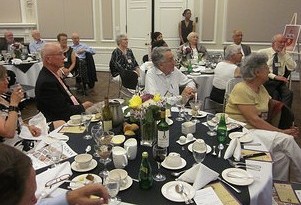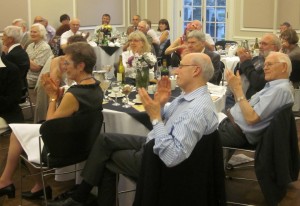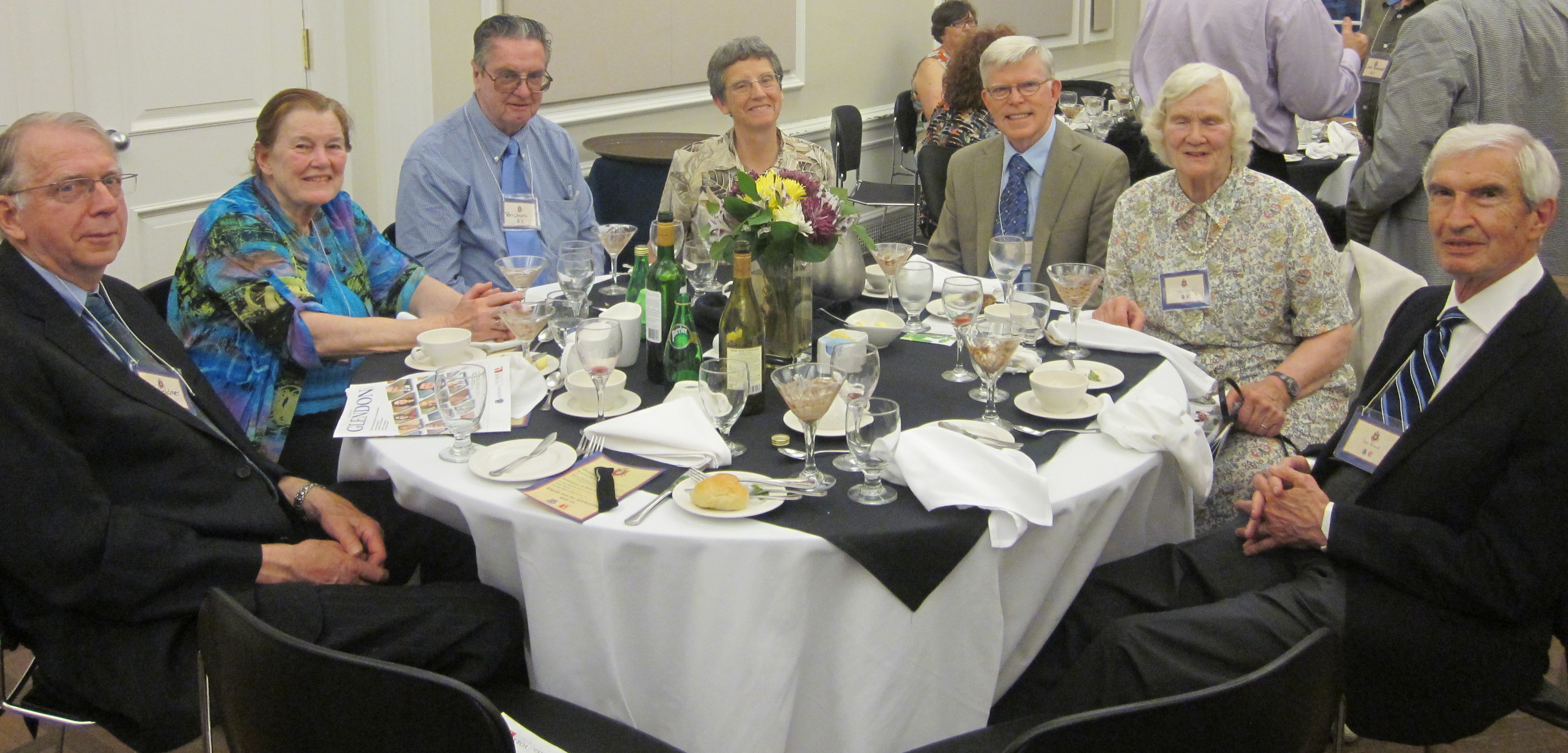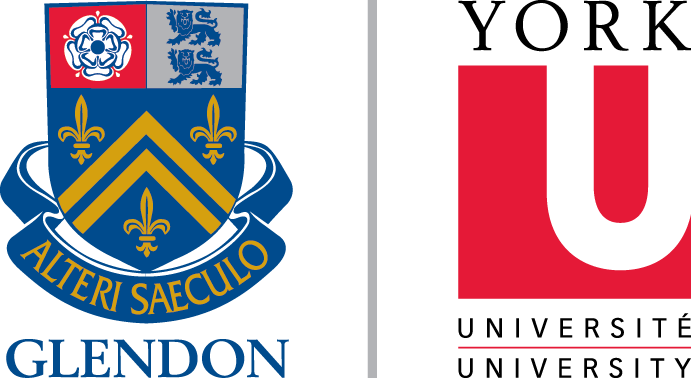Visit our Flickr Gallery to view more photos.
Memories of Glendon
I came to York University from the University of Toronto where I had been teaching as a junior member of the philosophy department and completing my PhD at the same time. During my interview with President Ross I was inspired by the idea of teaching in a university devoted to undergraduate teaching with an emphasis on the integration of the Humanities, Sciences and the Arts, with a curriculum in which poetry, music and art were considered equally with the sciences as the path towards a better understanding of ourselves and our place in the universe. The idea was to design an educational curriculum that would nourish and bring to fruition the more virtuous dimensions of human nature and make it possible for the truly educated person to resist confusing self realization with the accumulation of wealth and resist as well being conscripted into serving the corporate agenda’s insatiable appetite for growth and progressive consumption.
The first year was spent at Falconer Hall, in Queen’s Park. We received a great deal of media attention during our first year at Falconer Hall. In spite of my age and the fact that I wore a suit and tie I was constantly being asked by reporters what High school I had graduated from and what I courses I was taking at York. This prompted me to grow a beard and begin smoking a pipe which I thought would make me look more professorial.
We were required to teach the U of T Curriculum for the first 4 years, enriched by the unique York 1 on 1 Tutorial system as well as the Tea and Talk series that Murray Ross asked me to administer. When Murray gave me the list of people he had invited for the Tea and Talk series I noticed the name of Morley Callahan. This exited me because I had met Morley on two previous occasions but had never had the chance to speak with him about his work. The first occasion was in 1949 during that period of my life when I was a professional actor. I had a role in a New Play Society production of a play that Morley had written but apart from being introduced to him as part of the cast and noticing his presence during rehearsals there was no opportunity to speak with him. The other occasion was during the summer of 1953 when, as an undergraduate student at Queen’s University, I took a summer job as a meter reader for Consumer’s Gas. One day I was assigned a route in Rosedale and noticed Morley Callahan’s name and address. I thought that finally I would have a chance to speak with him about the novel of his that I had read as part of the first year English class that I had taken at Queen’s, as well as other matters relating to his friendship with the likes of Edmund Wilson, Ernest Hemmingway and F. Scott Fitzgerald. So, when he opened the door I was indeed thrilled that an opportunity for a meaningful conversation had finally presented itself. But alas, the only thing he wanted to talk about was the size of his gas bill and his conviction that the equipment must be defective. However, when I saw his name on the list for Tea and Talk I thought that finally I would have the opportunity to speak with him about these things. And indeed when the session with students ended and I suggested that we might get together sometime at a pub to speak about his work and reminiscences he cheerfully agreed, and we did subsequently meet on a couple of occasions during which I listened with fascination to his stories.
It was the tea and talk experience that inspired me in later years to design graduate courses around visits by the distinguished scholars whose publications formed the curricula for these courses. As well I was reminded of my undergraduate days at Queen’s University during which I was privileged to enjoy a pint or two with such distinguished scholars as Herbert Butterfield and C.Day Lewis who had been invited as scholars in residence to lecture and meet with students. Another great memory from my York days was bringing Paul Goodman to one of my classes in Greek Philosophy.
While at Falconer Hall, we began working on the development of the unique York curriculum with it emphasis on developing a General Education program based on those currently being offered at U.S Universities like Harvard, Yale and Columbia. I was appointed secretary of the curriculum committee and had the privilege of visiting these universities together with other members of the committee to learn more about the value of general education and the interdisciplinary courses that eventually became a unique feature of the York curriculum.
 Before we moved to the Glendon Campus I was appointed to the Art Committee. I had developed some close personal friendships with artists exhibiting in prominent Toronto Galleries. As a result of these friendships I was able to make arrangements with both the artists and their gallery dealers, with whom I had also developed friendships, for the loan of paintings by prominent Canadian and European artists that were placed throughout Glendon Hall. The entire building thus became an art gallery and I invited some of the artists represented to participate in the Tea and Talk series—which was a rather unique approach to the idea of art education. The Art committee asked President Ross to approach the Board with a request to allocate ½ of 1% of the Building Fund for the purchase of a collection of Canadian Art. They agreed, and this made it possible for York University to acquire one of the finest collections of Canadian art anywhere in the country.
Before we moved to the Glendon Campus I was appointed to the Art Committee. I had developed some close personal friendships with artists exhibiting in prominent Toronto Galleries. As a result of these friendships I was able to make arrangements with both the artists and their gallery dealers, with whom I had also developed friendships, for the loan of paintings by prominent Canadian and European artists that were placed throughout Glendon Hall. The entire building thus became an art gallery and I invited some of the artists represented to participate in the Tea and Talk series—which was a rather unique approach to the idea of art education. The Art committee asked President Ross to approach the Board with a request to allocate ½ of 1% of the Building Fund for the purchase of a collection of Canadian Art. They agreed, and this made it possible for York University to acquire one of the finest collections of Canadian art anywhere in the country.
We had frequent open houses for the general public. Most notable was an exhibition in 1962 called “A Decade of Art,” which attracted a great many visitors and considerable media attention. Another notable event at Glendon College was the first retrospective exhibition of the works of Albert Frank. The catalogue notes were written by Harold Town who had first proposed the idea to me. It was thus most appropriate for the first graduating class to donate one of Albert Frank’s paintings to Glendon College as a token of gratitude.
In addition to the tutorials, Tea and Talk series, and the art collection what made York unique from the very beginning was the vision of education that inspired its creation. In this vision the purpose of education is not simply to acquire knowledge for the purpose of gaining power over both nature and history. Its purpose is to direct us towards the celebration rather than domination of nature and towards the spiritual betterment and moral improvement of mankind. In this vision knowledge is equated with virtue rather than power. It is the kind of knowledge that enables us to resist the Faustian temptation to redesign nature simply because we have the power to do so—a possibility that invariably presents itself as obligatory. Is there any greater display of hubris than the assumption of a self-proclaimed right to replace nature, the product of natural selection, with a humanly designed artifact consisting of genetically engineered foods and designer babies; not to speak of the plastic trees and artificial swimming pools that are gradually replacing the natural lakes and forests which have been sacrificed to industrial progress?
There is a passage in Goethe’s Faust to the effect that “what from your fathers you acquire as heir earn in order to possess it.” The most precious part of this inheritance is the culture of civility which is what distinguishes civilization from barbarism. There is perhaps no better way of preserving this inheritance than by means of education; precisely the kind of education that inspired the creation of York University from its inception.
In addition to Plato, who first proposed the equation of education with virtue, the insights that lie at the basis of this vision find support in the writings of one of the truly outstanding architects of western culture, namely the philosopher John Stuart Mill. In his Inaugural Address to the students of St. Andrews, on the occasion of his installation as chancellor, Mill writes specifically about the primary purpose of a university education. In the spirit of Plato he makes a special point of warning us against the temptation to co-op universities into serving the corporate agenda:
“Universities are not intended to teach the knowledge required to fit men [and women] for some special mode of gaining their livelihood. Their object is not to make skillful lawyers or physicians of engineers but capable and cultivated human beings. It is very right that there should be public facilities for the study of the professions. It is well that there should be Schools of Law and Medicine, and it would be well if there would be schools of engineering and the industrial arts….But these things are no part of what every generation owes to the next as that on which its civilization and worth will principally depend….Whether those who choose to acquire a specialization will learn them as a branch of intelligence or as a mere trade, and whether having learnt them, they will make a wise and conscientious use of them or the reverse, will depend less on the manner in which they are taught their profession than upon what sort of minds they bring to it—what kind of intelligence and of conscience the general system of education has developed in them. [People are people] before they are lawyers or physicians or merchants or manufacturers; and if you make them capable and sensible [people,] they will make themselves capable and sensible lawyers or physicians.”
In this passage we are reminded of Plato’s attempt to educate us about the consequences of confusing techne with arête. Techne provides us with the skills that give us power over nature and enables us to be good at manipulating the means for accomplishing ends regardless of their moral worth. Arête, on the other hand, is the virtue that lies at the basis of sound moral character and enables us to become good persons. For both Plato and his mentor Socrates this confusion is the source of all evil and it is imperative that we understand why the education that produces techne is categorically distinct from the kind of education by means of which we acquire arête.
Precisely the same message is contained in the story of Prometheus. Zeus sent Prometheus to distribute the skills among mankind so that they might be better able to defend themselves against the brute beasts but recognizing that while they now had great power they lacked wisdom and fearing that they would us their powers to destroy one another Zeus dispatched Hermes to distribute wisdom so that they might use their newly acquired powers for good rather than demonic purposes. The intended message of this story is contained in the very meaning of the word Pro-metheus, which consists of two words, “Pro” meaning “before” and “Mathein,” one of several Greek words meaning “thought.” Taken together the intended meaning is “forethought” or “foresight.” There is, after all, all the difference between having the skills necessary to build an atomic bomb or engage in genetic engineering and having the wisdom (arete) or foresight to restrain from making use of these skills for purposes that are ethically indefensible. Given the pressures upon Universities today to be more industry and business friendly I cannot imagine a more eloquent and urgent reminder of what, in the spirit of Prometheus and Plato, Mill  regarded as the proper purpose of higher education. And I hope that as alumni of a university inspired by a similar vision we are all determined to carry that vision forward in our own professional and personal lives and apply our collective intelligence and conscience to ensure that this vision continues to remains alive, not only here in Glendon College and York University but in every other university upon which, as Mill believed, the promise of civilization depends. So in the spirit of this vision allow me to propose a toast to the future: tentanda via.
regarded as the proper purpose of higher education. And I hope that as alumni of a university inspired by a similar vision we are all determined to carry that vision forward in our own professional and personal lives and apply our collective intelligence and conscience to ensure that this vision continues to remains alive, not only here in Glendon College and York University but in every other university upon which, as Mill believed, the promise of civilization depends. So in the spirit of this vision allow me to propose a toast to the future: tentanda via.



